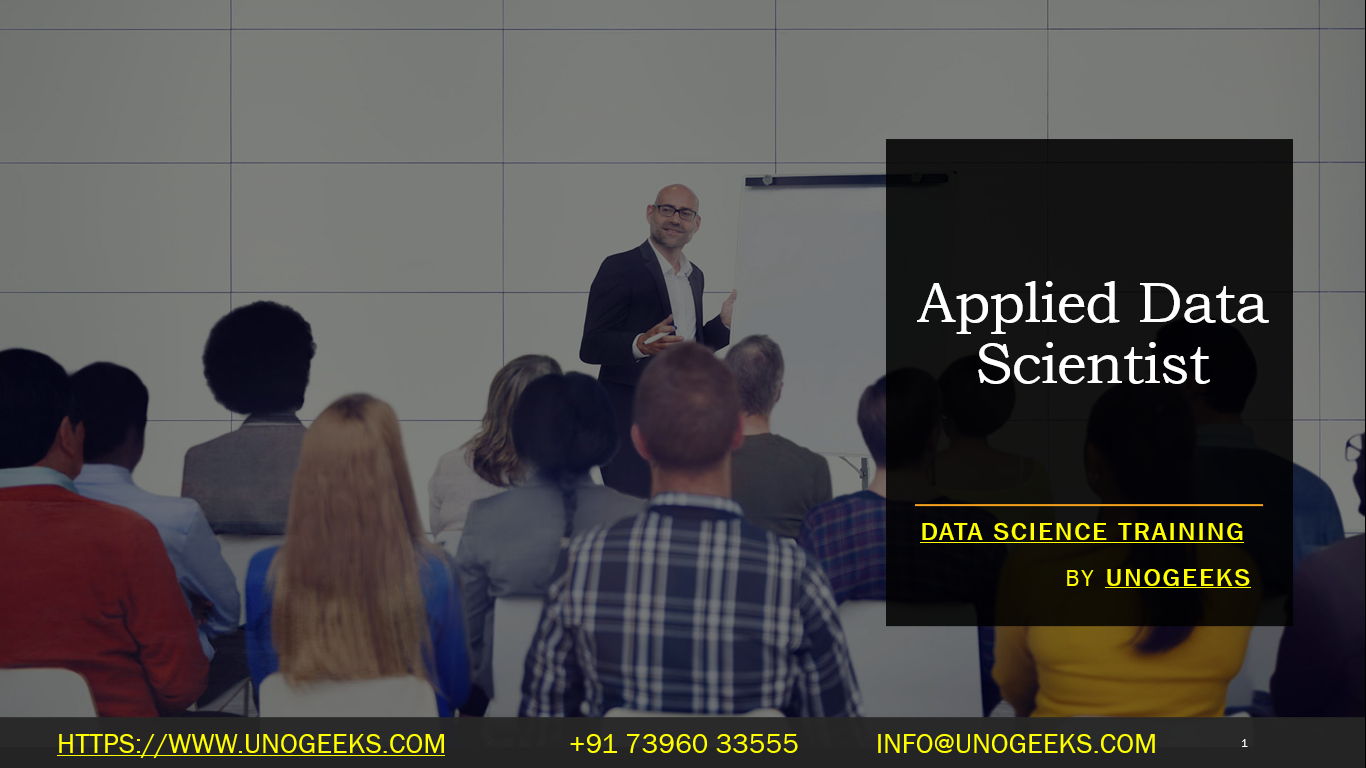Applied Data Scientist
An “Applied Data Scientist” is a data scientist who specializes in applying data science techniques, methodologies, and models to solve real-world problems in specific domains or industries. Applied data scientists bridge the gap between theoretical knowledge of data science and practical applications in fields such as healthcare, finance, marketing, engineering, and more. Here are key aspects of applied data scientists and their roles:
Domain Expertise: Applied data scientists often have expertise in a particular industry or domain. This domain knowledge is crucial for understanding the context, challenges, and nuances of the problems they aim to solve with data science.
Data Collection and Preparation: They are responsible for acquiring and cleaning data from various sources, which can include structured databases, unstructured text, sensor data, or even image and video data.
Feature Engineering: Applied data scientists create meaningful features from raw data, which is essential for building accurate predictive models. This involves data transformation and extraction of relevant information.
Model Selection and Development: They choose appropriate machine learning or statistical models to solve specific problems. This includes training, tuning, and evaluating models for predictive accuracy and performance.
Interpretation and Visualization: Applied data scientists use data visualization techniques to communicate findings and insights to stakeholders. They often work on creating interactive dashboards or reports for decision-makers.
Deployment: Once a model is developed and validated, they collaborate with software engineers or IT teams to deploy the model into production systems for real-time or batch predictions.
Monitoring and Maintenance: Applied data scientists are responsible for monitoring model performance over time, ensuring that it continues to deliver accurate results and making necessary updates or improvements.
Communication Skills: Effective communication is vital. They must be able to explain complex technical concepts to non-technical stakeholders and demonstrate the value of data-driven insights.
Ethical Considerations: Like all data scientists, applied data scientists must consider ethical and legal aspects of data usage, including privacy, bias, and fairness, especially when working with sensitive or personally identifiable information.
Problem-Solving: Applied data scientists are problem solvers at heart. They identify business or industry-specific challenges and use data science as a tool to address them effectively.
Data Science Training Demo Day 1 Video:
Conclusion:
Unogeeks is the No.1 IT Training Institute for Data Science Training. Anyone Disagree? Please drop in a comment
You can check out our other latest blogs on Data Science here – Data Science Blogs
You can check out our Best In Class Data Science Training Details here – Data Science Training

———————————-
For Training inquiries:
Call/Whatsapp: +91 73960 33555
Mail us at: info@unogeeks.com
Our Website ➜ https://unogeeks.com
Follow us:
Instagram: https://www.instagram.com/unogeeks
Facebook:https://www.facebook.com/UnogeeksSoftwareTrainingInstitute
Twitter: https://twitter.com/unogeeks
